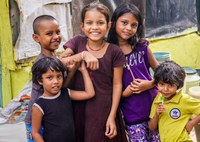Contributions Overview

Policy as a Tool for Change: Fashion Industry Edit
Join us for a roundtable discussion on how policy can be used as a tool to increase transparency and protect the rights of garment workers.

Green Economy Forum & Exhibition (GEFE) 2022
European innovations and sustainable solutions for Vietnam

Update on chemicals management in China
Hear the latest updates to placing chemical products on the Chinese market

‘Taiwan-REACH’ – The challenges ahead
Plan the next steps for your company

Climate crisis: Is it the final curtain for fast fashion?
Exploring how to tackle the fashion industry's huge carbon footprint

Source from thousands of textiles with a low environmental impact and discover sustainable solutions for a responsible fashion future

Leading international trade fair for technical textiles and nonwovens








